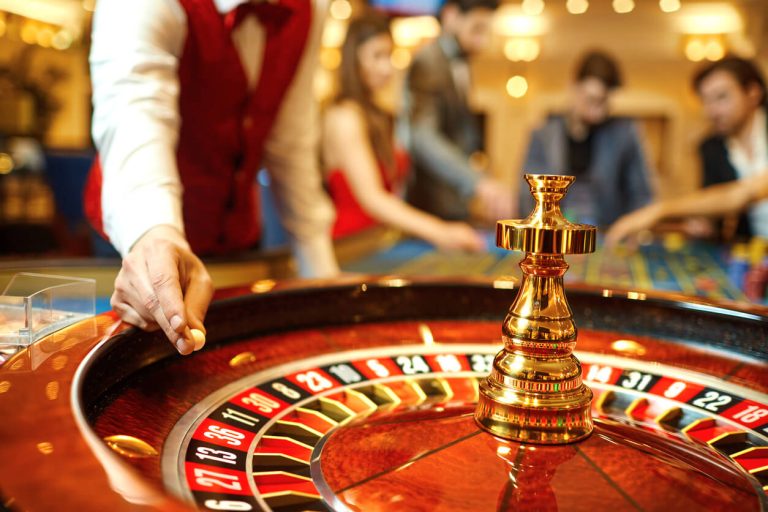
At first glance, the stock market and gambling may seem like two sides of the same coin: both involve risk, uncertainty, and the potential for significant financial gain or loss. However, while there are certainly similarities between the two, they are fundamentally different in terms of strategy, risk management, and underlying principles. Understanding these differences is crucial for anyone looking to invest in stocks or participate in gambling, as each comes with its own set of rules, rewards, and risks.
The Key Differences: Risk and Control
One of the biggest distinctions between the stock market and gambling is the level of control investors have over their outcomes. In gambling, especially in games of pure chance like slot machines or roulette, the outcome is determined solely by luck. No matter how much strategy or analysis you apply, the results are entirely random, with the house edge favoring the casino. The odds are set, and once you place a bet, you have no influence over what happens next.
In contrast, the stock market offers a much higher degree of control and analysis. While no investment is ever completely risk-free, the outcomes in the stock market are influenced by various factors—such as economic trends, company performance, and market sentiment—that investors can research, analyze, and leverage. Investors can apply strategies, diversify their portfolios, and make informed decisions to manage risk and improve their chances of profit. Tools like fundamental analysis (evaluating a company’s financial health and growth potential) and technical analysis (analyzing historical price patterns) provide investors with ways to assess stocks and make data-driven decisions. This level of strategic planning is absent in most forms of gambling.
Risk Management: Long-Term vs. Short-Term Betting
Another significant difference lies in risk management and time horizon. In gambling, the focus is typically on short-term outcomes—betting on a single roll of dice, a hand of cards, or the spin of a roulette wheel. While there are some betting systems designed to manage short-term risks, the emphasis is often on luck, and the goal is usually to win big, fast. In most gambling activities, the risks are concentrated in a single event, which means that your financial fate is decided in the blink of an eye.
In contrast, the stock market operates with a long-term mindset for most investors. While there is certainly volatility in the market, the goal of investing is typically to build wealth over time by holding a diversified portfolio. Historically, the stock market has tended to appreciate in value over long periods, and many successful investors, such as Warren Buffett, focus on identifying undervalued companies and holding them for years to capitalize on long-term growth. Additionally, investors can manage risk by diversifying their portfolios across different sectors and asset classes, minimizing the impact of any one loss. While short-term traders (such as day traders) may adopt a more speculative approach, the key difference is that, unlike gambling, investing in stocks involves a deliberate and often patient approach to risk.
Market Behavior vs. Random Chance
The behavior of the stock market is also driven by economic fundamentals and investor psychology, whereas in gambling, the outcomes are governed by random chance. For example, stock prices are influenced by company earnings, economic reports, interest rates, geopolitical events, and supply-and-demand dynamics. Investors can study these factors to make informed predictions about future stock performance.
On the other hand, gambling outcomes are determined by random number generators (in the case of online casinos) or the odds set by the game itself (in games like poker or blackjack). While skill plays a role in some games like poker or blackjack, even the best players are still subject to randomness in individual games. There is no way to alter the outcome of a roll of the dice or a card shuffle—gambling relies much more on luck than on informed decision-making.
Psychology and the Gambler’s Fallacy
While the stock market is more strategic, the psychological aspects of both gambling and investing can lead people to make poor decisions. For instance, both gamblers and investors may fall prey to the gambler’s fallacy, which is the belief that a losing streak (in gambling) or a declining stock price (in investing) will inevitably be followed by a win or a recovery. This mindset can lead to overconfidence, chasing losses, or holding on to poor investments. Both activities also elicit strong emotional reactions—fear during market downturns, or excitement during a win at the casino—which can cloud rational judgment.
The difference, however, is that in the stock market, investors have tools to guard against emotional decision-making. For instance, stop-loss orders can limit losses, and diversification can reduce the impact of volatility. In gambling, while some may use betting systems to manage emotions or try to minimize losses, there’s no real way to control the randomness of the game.
Is Stock Market Investing Gambling?
In some respects, stock market investing can feel like gambling, especially when speculation and short-term trading are involved. For example, buying penny stocks or trading on margin can resemble the high-risk, high-reward mentality often associated with gambling. However, for the most part, investing in the stock market, when approached with careful analysis, long-term goals, and risk management strategies, is a calculated decision aimed at growing wealth.
In contrast, gambling is purely about chance, with no strategic advantage or control over the outcome in games of pure luck. The stock market, while risky, offers opportunities for informed decision-making, growth over time, and the ability to manage risk through diversification and analysis. So, while both activities involve financial risk, investing in the stock market is not the same as gambling—it is a more calculated endeavor with tools to minimize risk and maximize potential returns.
Conclusion
While there are similarities between gambling and investing in the stock market, the key difference lies in the level of control and strategy involved. The stock market provides opportunities for informed decisions, long-term growth, and risk management, while gambling relies more heavily on luck, with limited control over outcomes. Understanding these differences is crucial for anyone looking to grow their wealth and avoid the pitfalls of treating the stock market like a game of chance. By approaching stock market investing with patience, discipline, and a well-thought-out strategy, you can reduce the risks and increase your chances of long-term financial success.

